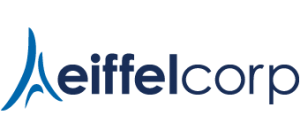
Building the Trifecta of Students Success
Cape Town, 17 April 2018: Leading education technology provider, Eiffel Corp, this week announced their ‘Trifecta model for building student success’.
“By combining online learning design and content, digital skills for teachers and data driven analytics, we believe the organisation will play a positive role in student success in a country where institutions are under enormous pressure and pass rates low in comparison to higher education statistics in other countries,” said Myles Thies, Director of Digital Learning Services at Eiffel Corp.
Despite cutting edge technology, large ticket item LMS systems and the availability of information, the South African higher education system is congested, with students taking too long to pass qualifications.
There are currently 1 million higher education students in the system, 400 000 of which are causing a bottleneck in the system, making it difficult for new students to enter due to a cap on the number of students who can be accommodated. Audited data from six institutions shows that between 11% and 31% of students completed their selected three-year qualification in the minimum allocated time ie three years. This increases to between 38% and 57% after a further two years.
The national average at universities for students completing a three-year degree in the minimum time of three years is 21%.
“From our work with higher education institutions in SA, many faculties are dominated by poorly conceived or applied instructional design, outdated or inappropriate content and references, insufficient technical support and infrastructure, as well as well-intentioned but ill-conceived application of monitoring and analytics solutions that have not produced relevant and accurate student performance data,” said Thies .
With these challenges in mind, Eiffel Corp is pioneering a learning solution that delivers, supports and provides data for higher education educators and administrators.
Our aim is to support institutions that have, since the turn of the millennium, made a significant investment in digital technologies to improve learner outcomes, yet still face daily challenges in achieving effective digitally enabled learning?

The solution, apart from secure guiding strategic objectives and a long-term commitment by senior leadership to quality and higher outcomes, is based in the combination of three specific disciplines that together form the foundation of a skills maximising and high competency building learning programme.
Digital Teaching Skills Development
Skill and understanding of the subject matter is the departure point for a campaign to influence the quality and impact of online course engagement. As the owner of the individual students’ academic development within a singular course, the onus is on the Subject Matter Expert (SME) to ensure they are equipped with the most relevant and up to date skills to facilitate learning in a digital environment. The very role of the educator is being transformed into one that guides the students in their learning journey to the point of understanding through the application of various digital mediums.
Eiffel Corp’s digital teacher training, DTS has been accredited by SETA and will assist any professional educators who are ill-equipped to effectively apply the digital environment and tools on hand to their fullest potential. This is hampered by institutional policy and strategy, infrastructure and access, as well as a myriad of social and human factors that influence the general digital learning environment.
Despite these challenges, educators can interweave the available technologies to create highly effective and academically relevant online learning interventions that are sensitive to the capabilities and constraints of the local student. But this can only be done once fully grasping the theoretical and technical aspects of digital teaching and learning and applying it to their area of professional expertise.
High Quality Instructional Design & Content
It can’t be overstated that effective and pedagogically relevant course design has a significant effect on student success and throughput. Consistency and high quality of course learning resources and artefacts is just as important to foster greater engagement.
“Our digital course and content development facility responds to the pedagogical inputs of the digitally savvy educator and enables them to focus on valuable teaching activities.
Student Performance Data & Predictive Capabilities
Since the advent of analytics, educators have sought ways to apply the data to create predictive models of student success. The pioneering Course Signals initiative conducted at Purdue University in 2010 has provided an evolving blueprint for how data on student performance can be used within the academic process to improve student outcomes and reduce dropout and failure rates. The analytics discipline has evolved exponentially to explore a wide array of data points beyond the traditional course interaction setting, including social media participation, online community development and interaction (social & epistemic network analysis) and even living conditions and economic influences.
It is only when these intentionally sighted, multiple data points and tasks are triggered, that the power of prediction and data driven decision making comes into its own.
“Only through the combination of instructional design, eTeacher training and analytics, can institutions hope to meet the challenges of preparing the modern learner and competing in an increasingly corporatized space for education,” added Thies.
As more and more universities and colleges vie for ever discerning and digitally capable students, the decision on where to study will be guided by the organisation’s reputation for providing programmes that offer multiple means of engagement, are recognised for their outstanding academic value and which incorporate modern means of ensuring that outcomes are achieved and are respected by the industries they ultimately serve and seek to better.




